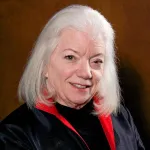(Press-News.org) While immune checkpoint inhibitors (ICIs) can provide lifesaving treatment for patients with cancer, they have also been found to cause immune-related adverse events (irAEs) — side effects that can impact almost every organ in the body to varying degrees. The frequency and severity of irAEs in real-world datasets are not well understood, making it difficult to combine cases effectively across institutions and gain insights into the optimal management of these patients. Since current approaches to investigate irAEs are done manually and are inefficient, researchers from Mass General Brigham have incorporated the use of a prebuilt large language model (LLM) to identify information relating to instances of irAEs in hospital settings.
The LLM identified the most common hospitalizing irAEs, including ICI-induced colitis, hepatitis, pneumonitis, and ICI-induced myocarditis, which can be fatal. The LLM was compared to the performance of International Classification of Disease (ICD) codes, which retrospectively identify irAEs, and demonstrated higher accuracy. Results are published in The Journal of Clinical Oncology.
“Not only did the LLM demonstrate higher accuracy in detecting irAEs compared to ICD codes, it identified additional cases of irAEs not picked up via manual adjudication, with an excellent specificity/sensitivity and at only 9.53 seconds per chart,” said corresponding author Kerry Reynolds, MD, Director of the Severe Immunotherapy Complications Program at Mass General Cancer Center. “As a free and open-source model, the LLM pipeline opens up this field, enabling other institutions to quickly recreate similar databases and has the potential to ignite collaboration in unprecedented ways.”
This study analyzed 10 years of data in a gold standard, manually curated dataset from patients who were hospitalized after receiving ICI therapy.
“The results demonstrated that the model consistently achieved sensitivities and specificities above 90% across the four irAEs which is excellent,” said Reynolds. “Historically, collaboration in the field of irAEs has been concentrated among large academic centers, leaving smaller community hospitals with less opportunity to contribute. This study has the potential to change that. The LLM presented in this study requires minimal computational resources and can be run on a local machine, we are eager to share it with the broader community.”
Authorship: Virginia H. Sun, Julius C. Heemelaar, Vineet K. Raghu, Azin Ghamari, Giselle A. Suero-Abreu, Tomas G. Neilan, Jor Sam Ho, Jessica Wu, Hannah K. Gilman, Ibrahim Hadzic, Meghan J. Mooradian, Steven M. Blum, Ryan J. Sullivan, Chia-Yun Wu, Leyre Zubiri, Nicole R. LeBoeuf, Daniel A. Zlotoff, Ayo S Falade, Benjamin Medoff, Shilpa Grover, Kelley Grealish, Nora Hathaway, Alexandra-Chloe Villani, Meghan E. Sise and Michael Dougan.
Paper cited: Sun VH et al. “Enhancing precision in detecting severe immune-related adverse events: comparative analysis of large language models and ICD codes in patient records” Journal of Clinical Oncology DOI: 10.1200/JCO.24.00326
END
AI tool offers more accurate detection of immune-related adverse events in cancer patients
Mass General Brigham-led study finds large language model enhances precision and efficiency in detecting complications
2024-09-04
ELSE PRESS RELEASES FROM THIS DATE:
Applications open for ISSCR Lawrence Goldstein Science Policy Fellowship
2024-09-03
The ISSCR is accepting applications through 25 October 2024 for the next class of Lawrence Goldstein Science Policy Fellows. The three-year program offers fellows advocacy and public policy training, the opportunity to participate in ISSCR advocacy events, engagement with leaders in the field, and an ex officio seat on ISSCR’s Public Policy Committee.
Goldstein Policy Fellows also have the opportunity to:
Attend ISSCR’s Congressional Advocacy Day in Washington D.C. or a policy- related event in another region of the world.
Participate in regularly scheduled Public Policy Committee meetings.
Assist the committee and ISSCR policy staff with projects and programs.
Contribute ...
UT Health San Antonio appoints alumnus as new executive director of Mays Cancer Center
2024-09-03
Lei Zheng, MD, PhD, alumnus of The University of Texas Health Science Center at San Antonio (UT Health San Antonio), has been appointed executive director of Mays Cancer Center at UT Health San Antonio and vice president for oncology for the health science center, effective Sept. 1, 2024.
Zheng will also be named the Mays Family Foundation Distinguished University Presidential Chair of Oncology and appointed as a professor with tenure in the Department of Medicine at UT Health San Antonio’s ...
New tool detects fake, AI-produced scientific articles
2024-09-03
BINGHAMTON, N.Y. -- When ChatGPT and other generative artificial intelligence can produce scientific articles that look real — especially to someone outside that field of research — what’s the best way to figure out which ones are fake?
Ahmed Abdeen Hamed, a visiting research fellow at Binghamton University, State University of New York, has created a machine-learning algorithm he calls xFakeSci that can detect up to 94% of bogus papers — nearly twice as successfully as more common data-mining techniques.
“My ...
New study uncovers key mechanisms responsible for the transformation of adult progenitors into brain tumors
2024-09-03
NEW YORK, September 3, 2024 — A new study from researchers with the Advanced Science Research Center at the CUNY Graduate Center (CUNY ASRC) sheds light on why certain oligodendrocyte progenitor cells (OPCs) in the adult brain transform into gliomas, the most common and incurable type of adult brain tumors. Previous work identified OPCs — dividing cells in the adult brain that play a crucial role in the brain's maintenance — as one of the brain cell types that give rise to these tumors.
“OPCs are often described as a double-edged ...
Kinsey Institute distinguished research scientist wins ISPNE 2024 Bruce Mcewen Lifetime Achievement Award for groundbreaking research on oxytocin and social behavior
2024-09-03
Dr. C. Sue Carter, Distinguished Research Scientist and Director Emerita of the Kinsey Institute, has been awarded the 2024 Bruce McEwen Lifetime Achievement Award by the International Society of Psychoneuroendocrinology. This prestigious award recognizes Dr. Carter’s lifetime of pioneering research that has significantly advanced our understanding of the biological and social underpinnings of human behavior.
A career biologist, Dr. Carter specializes in the endocrinology of love and social bonds. Dr. Carter is renowned for her discovery of the critical role of oxytocin in social bonding, stress management, and emotional ...
New species of pāua found
2024-09-03
The naming of a new species of pāua further highlights the importance of biodiversity research in Aotearoa.
Described in a study led by the University of Otago – Ōtākou Whakaihu Waka and the Museum of New Zealand Te Papa Tongarewa, the species, Haliotis pirimoana, is only found at Manawatāwhi Three Kings Islands, off the northern North Island.
Lead author Kerry Walton, an invertebrate curator at Te Papa who is undertaking his PhD in the Department of Zoology, says this is one of many species that are only found on Manawatāwhi.
“We are facing a biodiversity crisis. Species around the world are going ...
NFL PLAY 60 and the Nation of Lifesavers programs kickoff for 2024 season
2024-09-03
DALLAS, Sept. 3, 2024 — Today at Three Trails Elementary School in Independence, Mo. the American Heart Association, the Kansas City Chiefs and the National Football League (NFL) kicked off two programs rooted in proven American Heart Association science in advance of the 2024 NFL season kickoff. NFL PLAY 60™ supports students’ mental and physical health reducing sedentary behavior and increasing physical activity are key to immediate and long-term health ...
Newly discovered antibody protects against all COVID-19 variants
2024-09-03
Researchers have discovered an antibody able to neutralize all known variants of SARS-CoV-2, the virus that causes COVID-19, as well as distantly related SARS-like coronaviruses that infect other animals.
As part of a new study on hybrid immunity to the virus, the large, multi-institution research team led by The University of Texas at Austin discovered and isolated a broadly neutralizing plasma antibody, called SC27, from a single patient. Using technology developed over several years of research ...
Medicaid Accountable Care Organizations may increase care engagement and quality among pregnant and postpartum patients
2024-09-03
Medicaid Accountable Care Organizations May Increase Care Engagement and Quality Among Pregnant and Postpartum Patients
A new study found that Medicaid ACOs in Massachusetts were associated with increases in prenatal and postpartum office visits, postpartum depression screenings, and timely postpartum care.
Despite recent declines in nationwide maternal mortality, the United States continues to experience a significant maternal health crisis, in part shaped by inequitable access to quality healthcare ...
Researchers discover mechanism that could control longevity, cancer cell production
2024-09-03
Researchers at UC Merced used fruit flies to uncover a cellular process common to many organisms that could dramatically impact the understanding of cancer and aging.
Department of Molecular and Cell Biology Professor Fred Wolf, then-graduate student Sammy Villa and Genentech Vice President and Senior Fellow in Physiological Chemistry and Research Biology Vishva Dixit, discovered a mechanism that cells use to tune how much protein they make through the process of translating RNA into protein.
“This mechanism may be responsible for changes in protein translation in stress, cancer, and aging,” Wolf said.
Their work is detailed in the journal Nature ...
LAST 30 PRESS RELEASES:
Four NYU faculty win Sloan Foundation research fellowships
Personal perception of body movement changes when using robotic prosthetics
Study shows brain responses to wildlife images can forecast online engagement — and could help conservation messaging
Extreme heat and drought at flowering could put future wheat harvests at risk
Harlequin ichthyosis: a comprehensive review of pathogenesis, diagnosis, and management
Smithsonian planetary scientists discover recent tectonic activity on the Moon
Government censorship of Chinese chatbots
Incorporating a robotic leg into one’s body image
Brain imaging reveals how wildlife photos open donor wallets
Wiley to expand Advanced Portfolio
Invisible battery parts finally seen with pioneering technique
Tropical forests generate rainfall worth billions, study finds
A yeast enzyme helps human cells overcome mitochondrial defects
Bacteria frozen in ancient underground ice cave found to be resistant against 10 modern antibiotics
Rhododendron-derived drugs now made by bacteria
Admissions for child maltreatment decreased during first phase of COVID-19 pandemic, but ICU admissions increased later
Power in motion: transforming energy harvesting with gyroscopes
Ketamine high NOT related to treatment success for people with alcohol problems, study finds
1 in 6 Medicare beneficiaries depend on telehealth for key medical care
Maps can encourage home radon testing in the right settings
Exploring the link between hearing loss and cognitive decline
Machine learning tool can predict serious transplant complications months earlier
Prevalence of over-the-counter and prescription medication use in the US
US child mental health care need, unmet needs, and difficulty accessing services
Incidental rotator cuff abnormalities on magnetic resonance imaging
Sensing local fibers in pancreatic tumors, cancer cells ‘choose’ to either grow or tolerate treatment
Barriers to mental health care leave many children behind, new data cautions
Cancer and inflammation: immunologic interplay, translational advances, and clinical strategies
Bioactive polyphenolic compounds and in vitro anti-degenerative property-based pharmacological propensities of some promising germplasms of Amaranthus hypochondriacus L.
AI-powered companionship: PolyU interfaculty scholar harnesses music and empathetic speech in robots to combat loneliness
[Press-News.org] AI tool offers more accurate detection of immune-related adverse events in cancer patientsMass General Brigham-led study finds large language model enhances precision and efficiency in detecting complications


